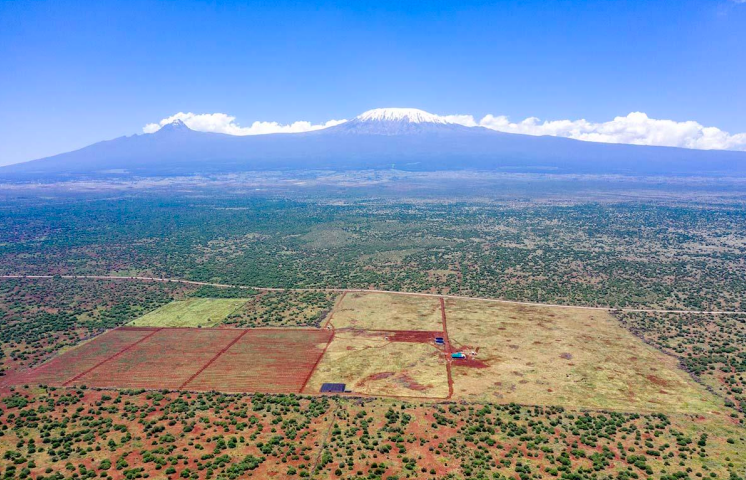

Some of the farming activities in Amboseli/Big Life Foundation
The Big Life Foundation has warned that the rapid land
subdivision across the Amboseli ecosystem is threatening its fragile
environment.
In its quarterly report covering April to June 2025, the conservation NGO highlighted that the fragmentation of large, community-owned land into thousands of small parcels, coupled with land sales, fencing and land-use conversion, could severely impact the region’s wildlife and natural habitats.
To address this, the foundation is supporting partner communities with structured land-use plans.
These include designated zones for settlement, agriculture, rangeland and conservancies or wildlife corridors.
Communities have reportedly set aside large areas for conservation and livestock grazing, with corridors connecting habitats across the ecosystem.
Currently, four group ranches—Mbirikani, Olgulului, Eselengei and Rombo—have completed subdivision plans covering about one million acres and approximately 25,000 members.
Kuku A and Kuku B are still in progress. The plans specify boundaries for each parcel and assign land-use zones, minimising conflicts while ensuring sustainable resource use.
Of the land, 368,708 acres have been zoned for wildlife conservation, including buffer zones around Amboseli National Park, while 440,000 acres are reserved for livestock grazing, prohibiting fencing or conversion to other uses.
The plans, approved by the county government, have been gazetted nationally for several ranches, supporting both wildlife conservation and the livestock economy.
Despite these measures, violations are frequent, particularly in Eselengei and Rombo, where outsiders are buying land, drilling boreholes, farming and erecting fences without permits.
Big Life Foundation operates across approximately two million acres in the Greater Amboseli ecosystem, covering areas from the rangelands north of Amboseli to Chyulu Hills, Tsavo West National Park and Kilimanjaro National Park in Tanzania.
It provides permanent and mobile ranger patrols, intelligence monitoring and cross-border collaborative efforts to protect wildlife.
This quarter, the foundation patrolled 61,462km on foot and 132,949km by vehicle. Enforcement actions included one arrest for bushmeat possession, 11 for trophy-related offences and two for attempted poaching.
Confiscated items included 68.3kg of ivory, 22 snares, 134kg of bushmeat, two python skins, 396kg of sandalwood and 72 tools or weapons.
The report also recorded one elephant mortality due to conflict and 28 crop-raiding incidents affecting 9.5 acres. Over 100km of crop-protection fencing has been constructed, while 16,146 acres have been restored, 3,674 acres are under active restoration, and 12,472 acres are undergoing natural regeneration.
The foundation emphasises that careful land-use planning and active conservation measures are essential to maintaining Amboseli’s ecological integrity while supporting the livelihoods of local communities.

















